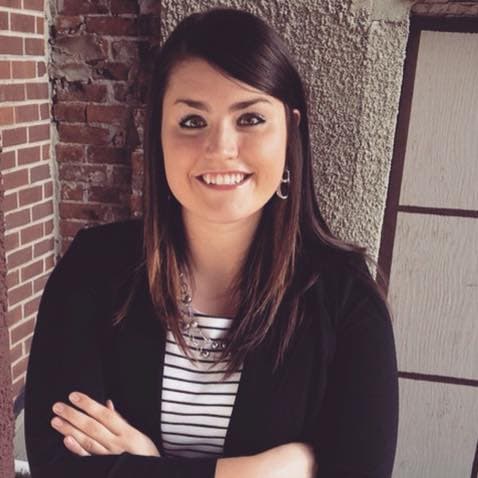To Go or Not To Go: How to Navigate Professional Happy Hours When You’re in Recovery



Tori Utley is an entrepreneur working jointly in technology innovation and addiction recovery, holding an M.B.A. and an addictions counseling license in Minnesota. By day, she works as a mobile Product Manager at Mayo Clinic and is working with the Department of Psychiatry and Psychology on a new mobile application for mood monitoring and mental health.




Tori Utley is an entrepreneur working jointly in technology innovation and addiction recovery, holding an M.B.A. and an addictions counseling license in Minnesota. By day, she works as a mobile Product Manager at Mayo Clinic and is working with the Department of Psychiatry and Psychology on a new mobile application for mood monitoring and mental health.
Happy hours are often the highlight of the work week – the time to mingle with your coworkers or network with business associates, potential clients and future partners. But when you’ve battled addiction and recovered from it, the question of whether or not to attend happy hour is a common one, but not an easy one.
There exists tension between what is best for your career versus what is wise for your recovery – and for professionals or those working on building a fulfilling career, this tension can be difficult to manage. The bad news is there’s no clear-cut, single answer for everyone in recovery. The good news is there exists a set of questions and tools you can use to decide what is right for you and how to make the best decision for both your career and your recovery.
To Go!
The benefits of professional happy hours are many, including the opportunities for networking and the ability to get to know your coworkers in an informal environment. Happy hours can be the place for off-hours relationship building, which can go a long way professionally. In many organizations, showing up to happy hours can also be viewed as engagement or interest in your job, organization or team. Work rapport can be established or enhanced by getting to know coworkers off-the-job, and for those building a client base, meeting potential partners, clients, or even investors at a networking event or happy hour can be the foundation you need to build a long-term relationship for your business.
For those in recovery, attending a happy hour or networking event may even feel freeing – now that you’re sober, you’re clear-headed. You may notice the conversations you’re having and the relationships you’re building are better and more intentional than they used to be – and that can be an exciting realization.
Not To Go!
While there are many benefits of professional happy hours, there are nearly as many cons. Happy hours can be an instant trigger for some in recovery, depending on how long you’ve been in recovery or your substance of choice. For many in early recovery, professional happy hours can be difficult, especially in the early days, and the way people gauge the early days even varies – some feel this means 6 months, others feel it means 3 years. From being in a bar environment to seeing and smelling alcohol, it might get your thinking and mindset in the wrong place.
Beyond the sights, smells and overall environment, social situations can be anxious for some. If drinking or using was a coping mechanism in social environments, be mindful of the attitude or anxieties you’ll experience at a happy hour or networking event while sober. Ask yourself – will I be able to get through the event or experience without feeling the urge to drink? Will I be able to stay sober if I do feel the urge to drink? Be honest in your assessment of your ability to navigate a happy hour or networking event as you try to keep your recovery first. If these situations or environments would trigger you to use or compromise your sobriety, do not go.
It’s a Personal Decision
There are also many gray areas of happy hours – all dependent on the person in recovery. Perhaps you can attend happy hour, but you need to coordinate a mentor, sponsor or friend in recovery to check-in on you. Perhaps you should not go at all, or possibly you cannot go within the first year, but could handle the situation in time. All of these variables will vary depending on the person, the length of time you’ve been in recovery, your recovery community involvement and the advice you receive from your sponsor.
To make a decision about whether or not to attend a professional happy hour or networking event, consider a variety of factors to help you make this personal decision – your length of recovery, your recovery program, advice from your sponsor and professional mentor, and even your frame of mind that day.
Our Promise
How Is Recovery.com Different?
We believe everyone deserves access to accurate, unbiased information about mental health and recovery. That’s why we have a comprehensive set of treatment providers and don't charge for inclusion. Any center that meets our criteria can list for free. We do not and have never accepted fees for referring someone to a particular center. Providers who advertise with us must be verified by our Research Team and we clearly mark their status as advertisers.
Our goal is to help you choose the best path for your recovery. That begins with information you can trust.













